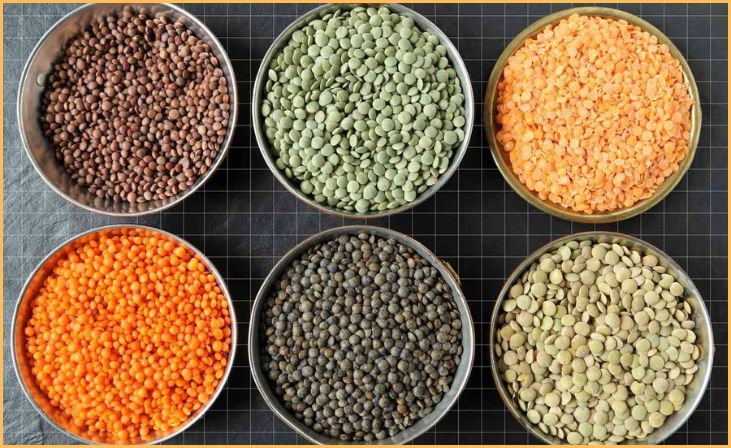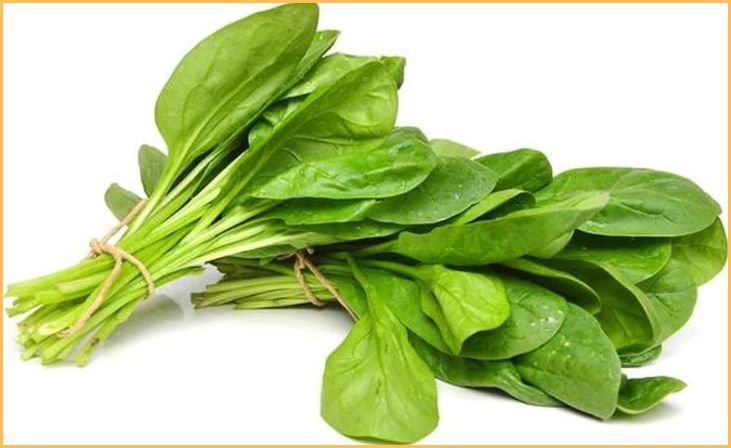Welcome to an insightful journey unveiling the top 10 best foods for hair growth and vitality. Your quest for healthier, more luscious locks begins here, as we delve into a curated selection of nutrient-packed foods that serve as the foundation for promoting stronger, thicker, and more vibrant hair.
From the protein-rich goodness of eggs to the omega-3 fatty acids abundant in salmon and the biotin-packed walnuts, this guide showcases a diverse range of foods recognized for their potential to boost hair growth. These foods aren’t mere culinary delights; they are nature’s gift, brimming with vitamins, minerals, and essential nutrients that nourish your hair from within.
Understanding the pivotal role nutrition plays in hair health, we aim to empower you with knowledge on how these foods stimulate follicles, combat hair loss, and contribute to overall hair strength and shine. Whether you seek remedies for thinning hair or aspire for a fuller mane, these superfoods hold the key to unlocking your hair’s growth potential.
Join us on this odyssey through the realm of nutrition, where each bite isn’t just a delight to the palate but also a step toward healthier, more resilient hair.
Best Foods for Hair Growth
Lentils

Lentils, small but mighty legumes, are nutrient-dense and versatile staples in various cuisines. Packed with protein, fiber, folate, iron, and B vitamins, lentils support heart health, aid digestion, and provide sustained energy.
Their high fiber content aids in regulating blood sugar levels and promoting a healthy gut microbiome. Additionally, lentils are a great plant-based source of iron, vital for oxygen transport in the body.
These legumes come in various types, including green, red, brown, and black, each offering unique flavors and textures. Lentils are utilized in soups, stews, salads, and curries, easily absorbing flavors while remaining a hearty and nutritious addition to meals.
Incorporating lentils into a balanced diet provides an array of essential nutrients, making them an excellent choice for both taste and health benefits, contributing to a well-rounded and nutritious meal plan.
Oysters
Oysters, regarded as a delicacy from the sea, are nutrient-rich bivalve mollusks known for their unique taste and exceptional health benefits. These shellfish are packed with zinc, iron, vitamin B12, omega-3 fatty acids, and protein, supporting immune function, brain health, and heart health.
Their high zinc content aids in immune system regulation and supports wound healing, while vitamin B12 contributes to nerve function and red blood cell production. Oysters are also a source of antioxidants, aiding in cellular health and reducing inflammation.
Enjoyed raw or cooked, oysters offer a briny and delicate flavor, making them a luxurious addition to seafood platters or various culinary dishes. Their nutritional density and savory taste make oysters not only a gastronomic delight but also a nutritious addition to a well-balanced diet.
Also Read: 7 Benefits Of Kale For Skin
Bell Peppers
Bell peppers, with their vibrant colors and crisp texture, are nutrient-rich vegetables celebrated for their versatile culinary uses and health benefits. Packed with vitamins A, C, and E, along with antioxidants and fiber, bell peppers support immune function, skin health, and overall well-being.
Their low calorie count and high water content make them a great addition to weight management plans, while their antioxidants aid in reducing inflammation and preventing chronic diseases. Bell peppers come in various colors, each offering unique flavors—green peppers possess a slightly bitter taste, while red, yellow, and orange peppers boast sweetness.
These versatile veggies can be enjoyed raw in salads, stuffed, grilled, or sautéed in various dishes. Incorporating bell peppers into meals adds color, crunch, and a nutritious punch, making them a flavorful and wholesome addition to a balanced diet.
Sunflower Seeds
Sunflower seeds, derived from the large center of sunflowers, are nutrient-dense powerhouses packed with health benefits. These small seeds boast a rich supply of vitamin E, healthy fats, protein, fiber, and minerals like magnesium and selenium.
Their high vitamin E content acts as an antioxidant, protecting cells from damage and supporting skin health. Sunflower seeds’ magnesium content aids in muscle function and bone health, while selenium contributes to thyroid function and immunity.
These versatile seeds can be enjoyed raw, roasted, or added to salads, cereals, or baked goods for a crunchy texture and nutty flavor. Their nutritional profile offers a range of benefits, from heart health support to immune system fortification, making sunflower seeds a delightful and nutritious addition to a balanced diet.
Sweet Potatoes

Sweet potatoes, with their vibrant orange flesh and sweet taste, are nutrient-dense root vegetables cherished for their exceptional health benefits. Packed with vitamins A, C, and B6, along with fiber, potassium, and antioxidants like beta-carotene, sweet potatoes support immune function, eye health, and overall well-being.
Their natural sweetness makes them a versatile ingredient, perfect for both savory and sweet dishes. From baked and mashed to fries or added to soups and salads, sweet potatoes offer a rich, creamy texture and a delightful flavor.
These nutritious tubers aid in digestion, promote skin health, and contribute to heart health due to their fiber and potassium content. Incorporating sweet potatoes into meals provides a delicious and nutritious boost, making them a flavorful and wholesome addition to a well-balanced diet.
Almonds
Almonds, with their crunchy texture and delicate flavor, are nutrient-dense nuts celebrated for their remarkable health benefits. Loaded with vitamin E, healthy fats, protein, and fiber, almonds support heart health, skin vitality, and overall well-being.
Their high antioxidant content aids in reducing oxidative stress and inflammation, while their healthy fats contribute to cholesterol regulation and brain function. Almonds also provide magnesium and calcium, supporting bone health and muscle function.
These versatile nuts are enjoyed raw, roasted, or as almond butter, and are a versatile ingredient in both sweet and savory dishes. Whether as a snack or an addition to salads, cereals, or baked goods, almonds offer a satisfying crunch and a wealth of nutritional advantages, making them a delectable and wholesome choice for a balanced diet.
Eggs
Eggs, nature’s powerhouse, are nutrient-rich wonders renowned for their versatility and health benefits. Packed with high-quality protein, vitamins such as B12, riboflavin, and essential minerals like iron and selenium, eggs aid muscle repair and support overall health.
Known for their adaptability, eggs can be prepared in countless ways—boiled, scrambled, fried, or used as a binding agent in baking and cooking. Their vibrant yolk signifies a concentration of nutrients, including antioxidants like lutein and zeaxanthin, beneficial for eye health.
Eggs are a budget-friendly and convenient source of complete protein, aiding in weight management and providing essential amino acids. Whether as a breakfast staple, an ingredient in various dishes, or a quick snack, eggs remain a delicious and nutritious dietary choice, valued for their taste and nutritional benefits.
Salmon
Salmon, a prized fish with its pink flesh and rich flavor, is a nutritional powerhouse packed with essential nutrients and health benefits. Abundant in omega-3 fatty acids, protein, vitamin D, and B vitamins, salmon supports heart health, brain function, and overall well-being.
Its omega-3 content reduces inflammation and lowers the risk of heart disease while supporting brain health and cognition. Salmon is also a source of high-quality protein, aiding muscle repair and metabolism.
Versatile in the kitchen, salmon can be grilled, baked, or pan-seared, offering a delectable taste and moist texture. Whether enjoyed as a fillet, steak, or in salads, soups, or pasta dishes, incorporating salmon into meals provides a flavorful and nutrient-rich option, making it a prized choice for a balanced and healthful diet.
Guava
Guava, a tropical fruit revered for its unique taste and abundant health benefits, is a nutritional powerhouse. Loaded with vitamin C, antioxidants, fiber, and potassium, guava supports immune function, digestive health, and heart health.
Its high vitamin C content aids collagen production, promoting skin health and wound healing. Guava’s antioxidants combat free radicals, reducing cellular damage and inflammation.
Available in various varieties, guava can be enjoyed raw, juiced, or added to smoothies, salads, or desserts. Its distinct sweet and slightly tangy flavor adds a tropical flair to culinary creations.
This low-calorie fruit is a fantastic source of dietary fiber, aiding digestion and supporting weight management. Incorporating guava into a balanced diet offers a delicious and nutritious way to boost overall health and savor a taste of the tropics.
Also Read: 8 Best Foods for Healthy Hair & Scalp
Spinach

Spinach, the verdant leafy green, is a nutrient-dense powerhouse cherished for its myriad health benefits. Bursting with vitamins A, C, K, and folate, along with iron, calcium, and antioxidants, spinach supports immune function, bone health, and overall wellness.
Its high vitamin K content contributes to bone strength and blood clotting, while antioxidants like lutein promote eye health and reduce the risk of age-related macular degeneration.
Versatile in the kitchen, spinach can be enjoyed raw in salads, sautéed as a side dish, blended into smoothies, or incorporated into various recipes. Its mild flavor and tender texture make it an ideal addition to numerous dishes.
With its low calorie count and wealth of nutrients, including fiber, spinach is a nutrient-packed green that adds both flavor and nutritional value to a well-balanced diet.
Conclusion
As we conclude this exploration of the top 10 foods for hair growth, remember that the path to stronger, more resilient hair often begins on your plate. Incorporating these nutrient-rich foods into your diet isn’t just about fostering external beauty; it’s a commitment to nurturing your hair from within.
The vitamins, minerals, and essential nutrients found in these foods play a crucial role in supporting hair follicles, preventing hair loss, and stimulating growth. Embrace these foods as allies in your journey to achieving luscious, healthy locks.
By making mindful choices and including these hair-nourishing foods in your daily meals, you take proactive steps toward improving not just the appearance but also the strength and vitality of your hair. Let the power of nutrition pave the way for the hair of your dreams, ensuring each strand reflects the nourishment and care you provide it daily.
FAQs
Foods like spinach, sweet potatoes, and berries are rich in vitamins A and C, promoting scalp health and collagen production, which supports hair growth and thickness.
Absolutely! Foods like eggs, lean meats, and legumes supply the protein necessary for hair structure, aiding in its growth and strength.
Omega-3 fatty acids found in fish like salmon and chia seeds promote scalp health, reduce inflammation, and contribute to stronger hair growth and a healthier scalp environment.







